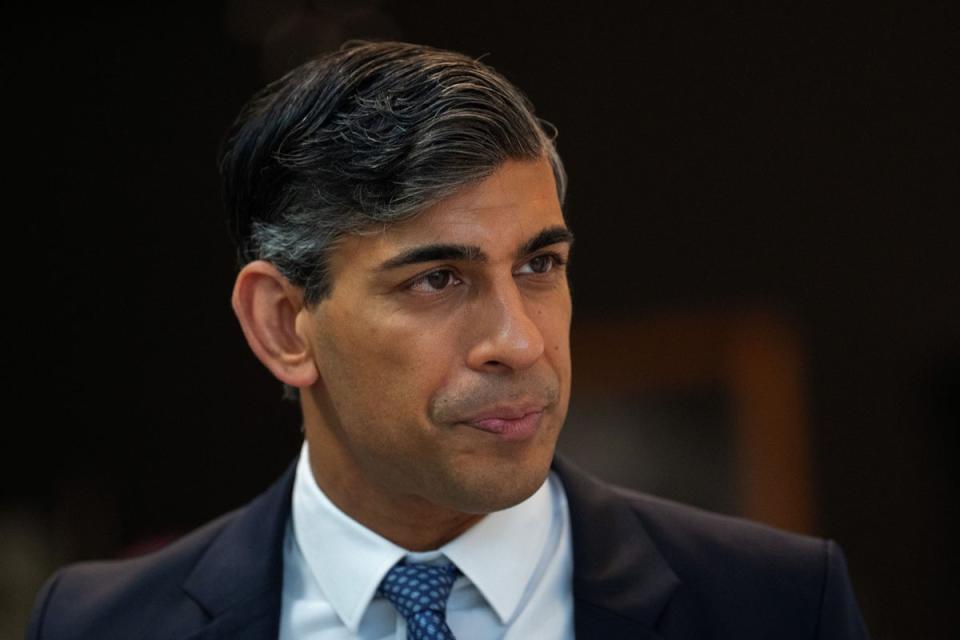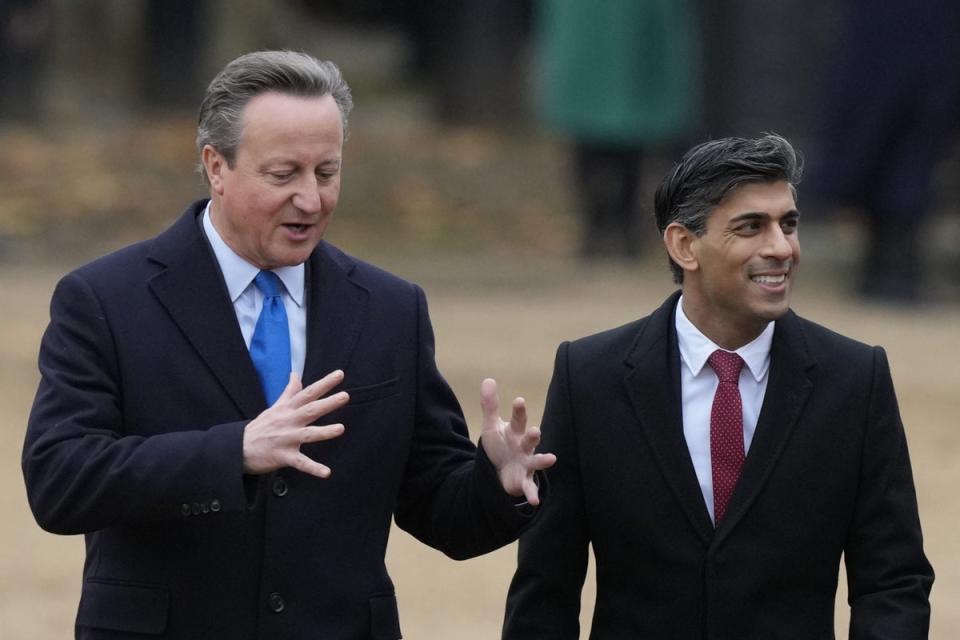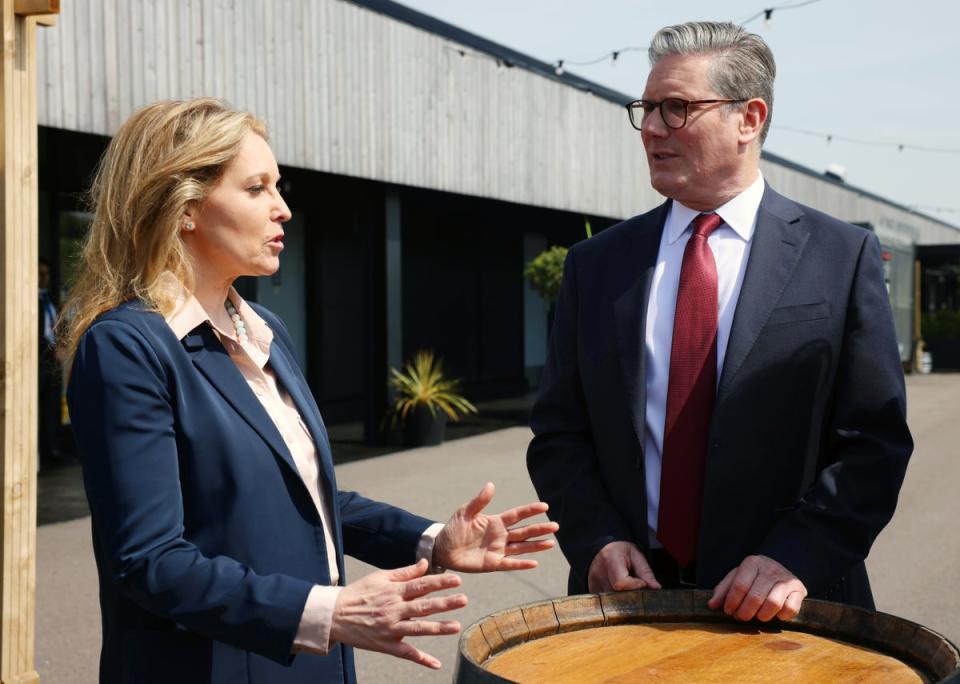Rishi Sunak is staging yet another relaunch of his premiership with a general election on the horizon, promising “bold ideas” to “create a more secure future for you and your family”.
In a desperate pitch to voters after this month’s local election drubbing, the prime minister will pledge to “restore people’s confidence and pride in our country”.
And he will stress that “more will change in the next five years than in the last thirty”, with the next few years to be among the most dangerous the country has ever witnessed, adding he felt “a profound sense of urgency”.

In what Downing Street billed as a “major” speech in central London, the PM will say: “Our country stands at a crossroads.
“Over the next few years, from our democracy to our economy to our society – to the hardest questions of war and peace – almost every aspect of our lives is going to change.
“How we act in the face of these changes – not only to keep people safe and secure but to realise the opportunities too – will determine whether or not Britain will succeed in the years to come.
“And this is the choice facing the country.”
The policy-light speech will be an attempt to draw a dividing line with Labour leader Sir Keir Starmer, who is on course to take the keys to Downing Street later this year.
Mr Sunak will seek to paint Labour as having “old ideas, old thinking and nothing positive to say”, No10 sources suggested. And he will promise the Conservatives are ready to face oncoming challenges and embrace the opportunities they present.


In the speech, Mr Sunak will say: “I have bold ideas that can change our society for the better, and restore people’s confidence and pride in our country.
“I feel a profound sense of urgency. Because more will change in the next five years than in the last thirty.
“I’m convinced that the next few years will be some of the most dangerous yet most transformational our country has ever known.”
The PM is expected to hold a general election in October or November and faces an uphill battle, with Labour consistently 20 points ahead in the polls.
He attempted last week to win over disgruntled Tory MPs after a stunning set of local election defeats, including of the incumbent West Midlands mayor Andy Street, who lost to Labour’s Richard Parker.
The PM told nervous backbenchers that his economic plan is working and that the party has it all to play for.
He was buoyed on Friday by official figures showing the economy grew by 0.6 per cent over the first quarter, ending a technical recession recorded in the final half of last year.


And on Monday he will attempt to win over voters, touting his leadership in areas such as security. The prime minister will vow to safeguard the UK against threats of war, a global rise in immigration and “those seeking to undermine our shared values and identities”, according to Downing Street.
Foreign Secretary David Cameron on Sunday argued it would be “absolutely right” for the general election to be held in the second half of the year to give voters time to see “the economic plan is working”.
Talking up the Conservatives’ chances, Lord Cameron told Sky News: “I think you’ve got a very clear choice opening up, and that’s what happens as you get to the end of a parliament. It stops being a referendum on the Government every day and it starts being a choice between two teams.”
The PM’s latest attempt at a relaunch comes after a devastating week in which he was rocked by the defection of right-wing Tory MP Natalie Elphicke.
She crossed the floor of the House of Commons with a swipe at Mr Sunak’s “tired and chaotic government” and accused him of failing to deliver on his promise to “stop the boats”, adding that Labour would “bring a much better future for our country”.
Reacting to the prime minister’s speech tomorrow, Labour’s shadow chancellor Pat McFadden said the Conservatives “can’t fix the country’s problems because they are the problem”.
He added: “Nothing the Prime Minister says will change the fact that over the past fourteen years the Conservatives have brought costly chaos to the country, with this being the only Parliament in living memory where people’s standard of living will be lower at the end of it than the beginning.”
Source Agencies

